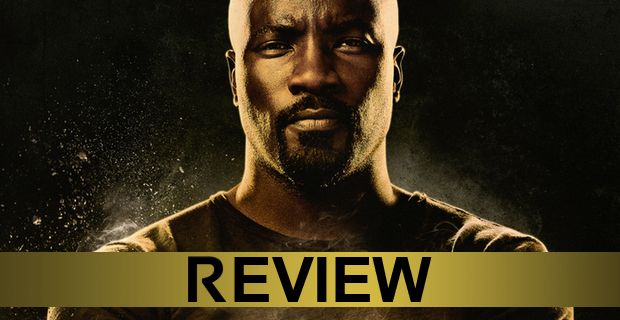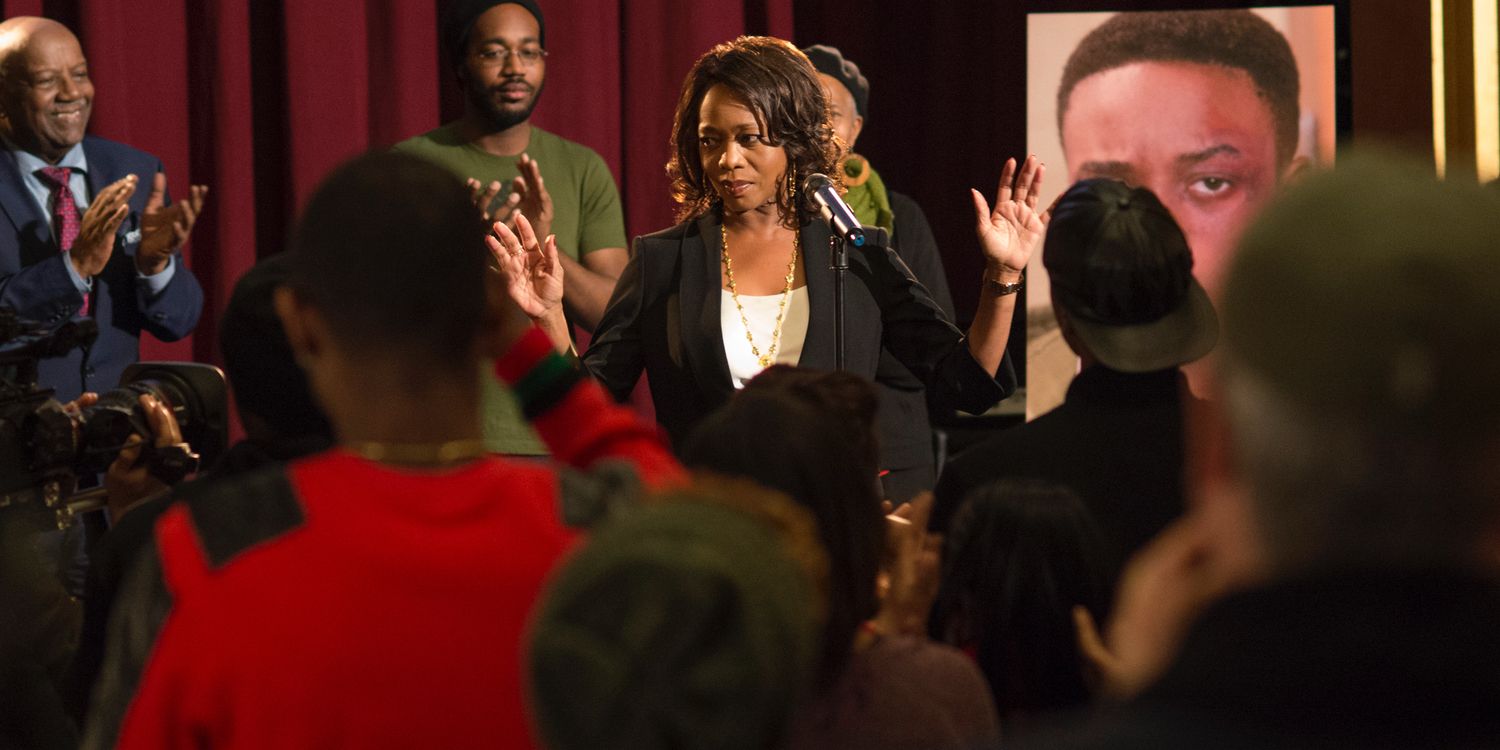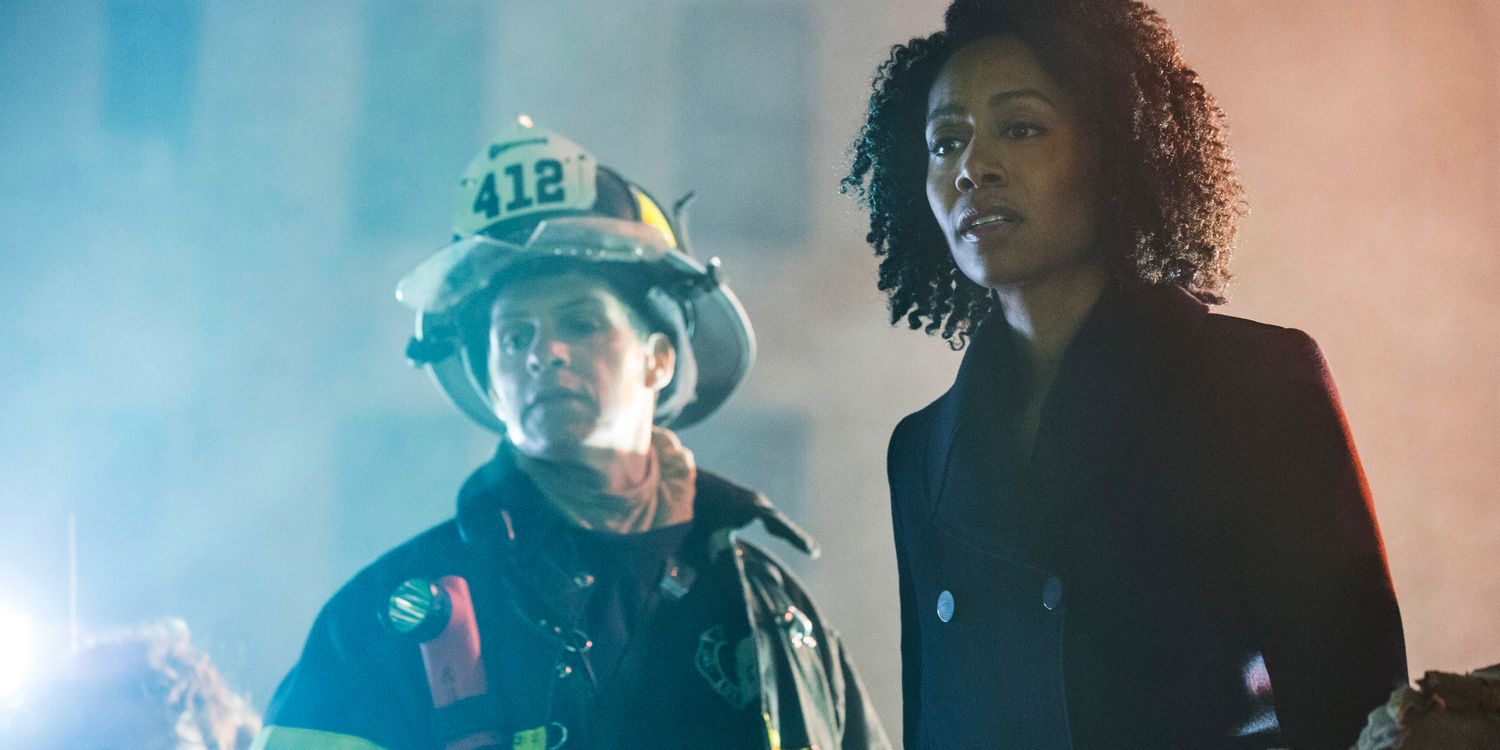[This is a review of the Luke Cage season 1 finale. There will be SPOILERS.]
-
13 hours is a significant amount of time for any series to fill. It's a task that becomes more daunting when the story's delivery model is the Netflix all-at-once or binge-watch method, which makes viewing the next installment and the installment after that so easy it you almost forget how nearly compulsory it all is. Certainly there are those who love the idea of spending that many hours with their favorite comic book superhero, living in their world and looking for Easter eggs or what not. But after two seasons of Daredevil and one each of Jessica Jones and Luke Cage the question becomes: Are these 13 hours being used in the best possible way in terms of telling a punchy, propulsive story?
To its credit, Luke Cage is filled with strong characters. Mike Colter is fantastic in the lead role and supporting players like Mahershala Ali, Alfre Woodard, Simone Missick, and Erik LaRay Harvey all bring their A-game. Ali shines early on, while Woodard kicks into another gear once Cottonmouth is gone. Meanwhile, Missick delivers some of her best work in the finale one the delightfully over-the-top Harvey is dispatched by the hero. All in all, the terrific characters help bring Harlem to life. It's not altogether unlike Daredevil's exploration of Hell's Kitchen as an extension of the hero himself, a key component of his identity as a hero and a vigilante. At the beginning, the story intimates a thread that ties directly into the community in Harlem and makes it an engaging and lived-in place. But that story could be half the length. There is some strong thematic work being done here, but a show can't get by on those elements alone; the story isn't compelling enough to necessitate a 13-hour runtime.
Like its streaming predecessors, Cage comes out swinging in the first hour. But soon after, the narrative haymakers of the premiere are reduced to a succession of quick jabs, as the series is forced to dance around for several hours in order to fill up time until the plot picks back up around episode 7. (There are exceptions, like the thrilling assault on the Crispus Attucks building, but such moments are too few and far between.) Even then, though, the story never really turns into anything that matches the series' thematic and political ambitions. After several hours of setting up Cottonmouth and Mariah as the big bads, going so far as to offer an extended look into their troubled family history, the series kills the man touted as the its primary antagonist. The incident admittedly delivers a surprising twist, as it demonstrates a new layer to Mariah's character, but it also works to weaken the foundation the series had spent so much time constructing.
As the season segues away from Cottonmouth and turns toward making Diamondback into the real big bad – complete with Luke Cage-killing "Judas" bullets and later, a Hammer Tech suit that puts him on par physically with his imposing half-brother – it never quite finds the same sense of moral complexity it had before. Shifting gears from a complicated villain with a tragic background to one motivated primarily by daddy issues, relegated too much of the season's latter half to a familiar twist on the Cain and Abel story.
After splashing around in some morally murky waters during the early part of the season, the swing to such a straight good vs. evil binary made the series seem more pedestrian at times. And while the latter episodes were infused with some terrific moments, like Luke's run-in with Method Man and later his rap that played over a montage of men in Harlem rallying around Luke and showing their solidarity by wearing hoodies with bullet holes in them, the lingering issue of Diamondback felt more perfunctory than it should have.
Outside of Harvey's scenery-chewing performance, the main problem with Diamondback was the way his role as antagonist was stacked to the point of it being such a ridiculously evil resume that even Dr. Doom would say, "You need to pick one thing and go with it." Willis Stryker is a crime boss who controls Harlem and Cottonmouth, but he's also gleefully homicidal and the most capable man in his crew, meaning he doesn't send a lackey to do his bidding; he just does it himself. That's all well and good, but when you throw in the fact that he's also Cage's resentful half-brother who framed him for the crime that got him sent to prison in the first place, and now he's in possession of weapons that can penetrate Luke's unbreakable skin… well, that's just too much of a coincidence. Throw in a supersuit that seems specifically designed to challenge Luke's powers and has all the visual panache of a waste management jumpsuit (yes, the joke is that Hammer Tech is terrible, but it does seem like a big design sacrifice to make in order to reference a character from Iron Man 2), and the climactic showdown comes off a little more forced that it should have.
In the end, the series may not have had enough of a story to support its serialized format and its overlong runtime, but Luke Cage does present a strong depiction of its hero learning to accept his role as one. And that focus on a character so unrelentingly good helps make Luke Cage special. This particular portrayal of Cage as a reluctant, taciturn protector of Harlem is the strongest element of Cheo Hodari Coker's vision and that, along with the fantastic supporting characters and perspective, helps the series overcome its deficiencies.
-
Luke Cage season 1 is available in its entirety on Netflix.
Photos: Netflix



